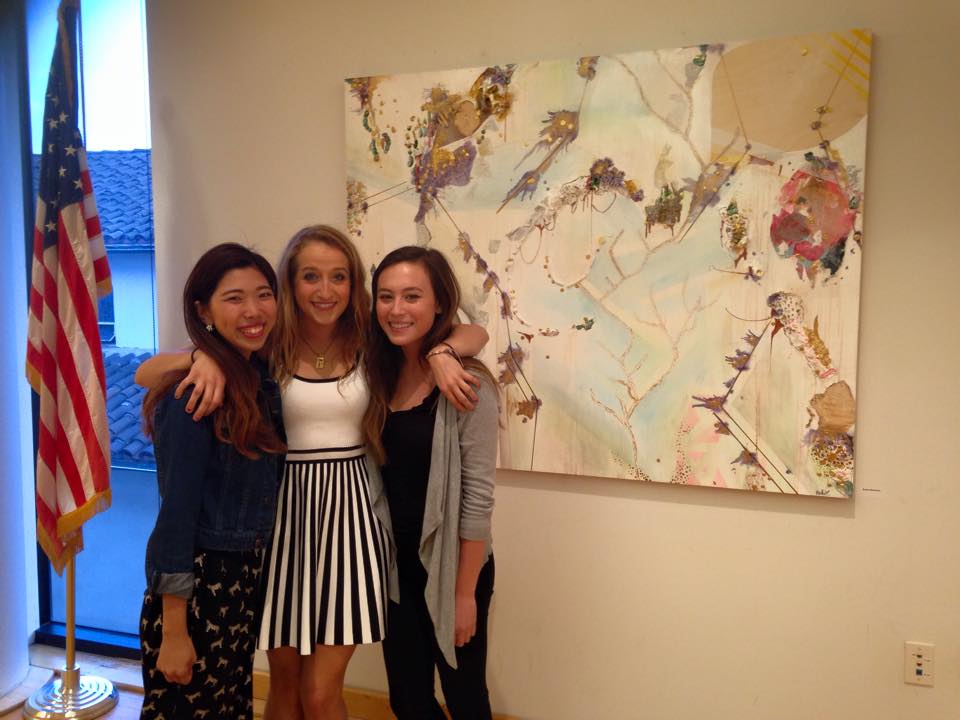Sponsored and funded by the Pamela and Randol Schoenberg Foundation, the Fine Art Show located at Hillel on May 21 drew dozens of applicants and 150 viewers, and left the winner with $1,000 and the Philliss and Lou Mann Prize for Excellence in the Arts award.
Rachel Berkowitz, an art major, acted as curator and organized the Fine Art Show and Photography Competition. Berkowitz speaks disparagingly of the presence of Angeleno Jews in art. “In the art world in LA, there are very few Jews. I’m probably the only Jew in all of my art classes.” Yet, Berkowitz explicitly states that she did not want the event to be a Jewish one, irrespective of its location at UCLA’s Hillel.
Her main goal for the event was to introduce more people to art and make it accessible to everyone, since she describes art in LA as extremely exclusive and at times alienating to those who have little understanding of it. New up-and-coming art is primarily located in private residences. “You need to have connections if you want to see top, upcoming artists. It’s hard for outsiders to witness art in LA.” The art show provided a way for all to “mingle over a common interest,” she explained.
The setting at Hillel introduced non-Jews to the building and the community it holds. “It’s important that [non-Jews] come here,” Berkowitz states. “Half don’t know what Hillel is.” She recounts when participants in the photo competition came to Shabbat at Hillel the following weeks. “This is a way to tie people together in a different environment.”
Can this be an alternate way to lead interfaith and inter-community communication? Culture-specific events stress our differences and make us forget our similarities. By drawing in a limited demographic, such groups emphasize our disparity and divide us religiously, politically, or even ideologically
Berkowitz’s Fine Art event presents an alternative form of interfaith communication, mirroring other projects like the West-Eastern Divan Orchestra. The West-Eastern Divan, a Spain-based youth orchestra with members from Spain and all over the Middle East, was created with the hope to “replace ignorance with education, knowledge and understanding; to humanize the other; to imagine a better future.” Rather than understanding one another through the prism of war, Israelis, Palestinians, and others interact with one another in a way that can overcome their deep political, religious, and ideological divides. This project has fared great success and suggests an innovative way to establish better relationships between two or more distinct and even warring groups.
Events and organizations such as Berkowitz’s Fine Art competition and the West-Eastern Divan Orchestra open the door for good conversation, and have the potential to build strong relationships between communities in a different and possibly more effective way. These events create a platform for calm dialogue and evoke good conversation. Stressing our common interests, they can serve to alleviate the hatred/distance sourced from alienness. Perhaps this is a way forward.
The Fine Art event was a great success, drawing many people and including three different kinds of music to appeal to all tastes. “It hasn’t really sunk in, I’m really happy with it,” Berkowitz exclaims happily. Prompted for any final words, Berkowitz states, “All you need is art appreciation.” And indeed, perhaps this is more apt that many of us realize.

